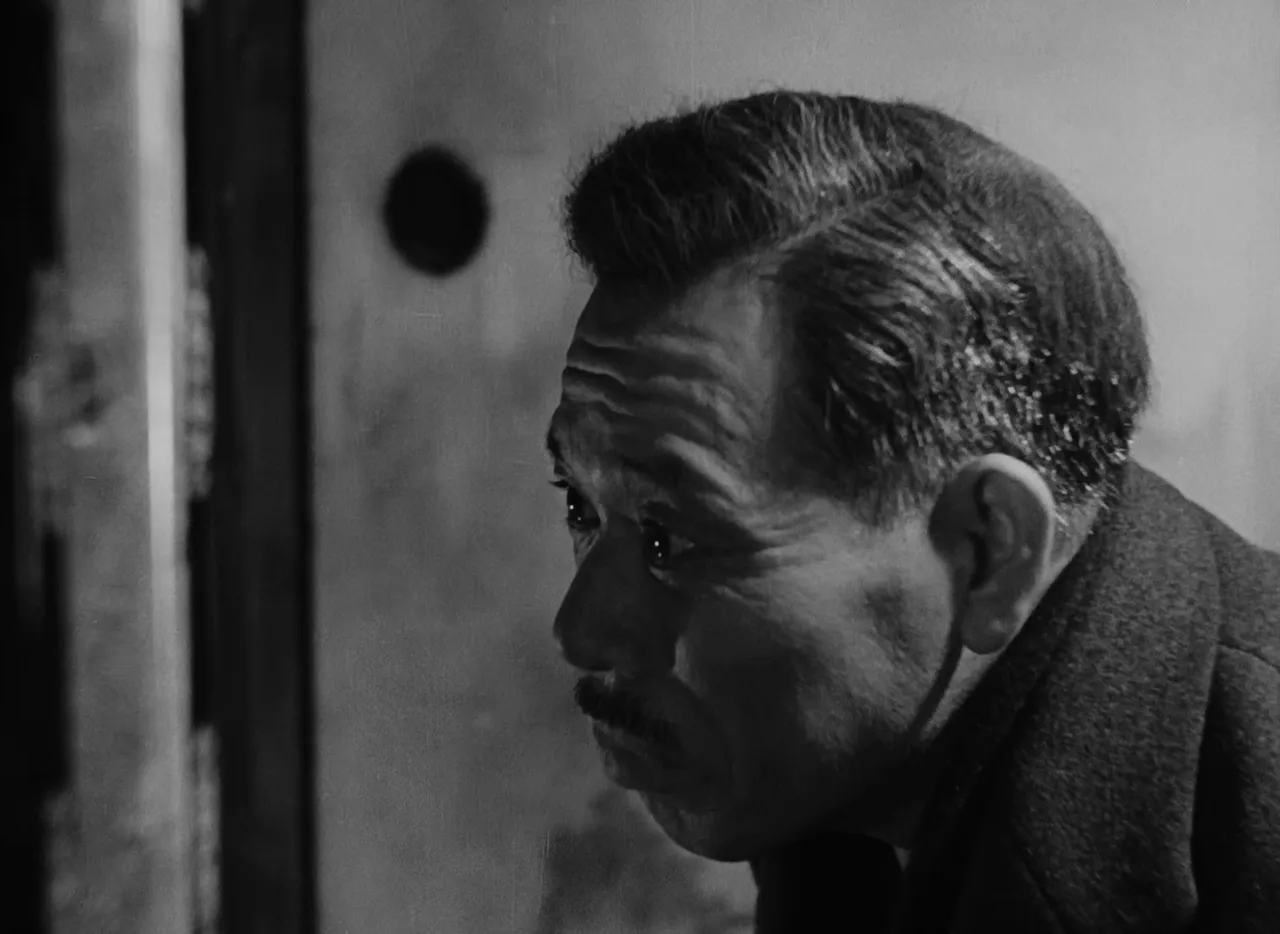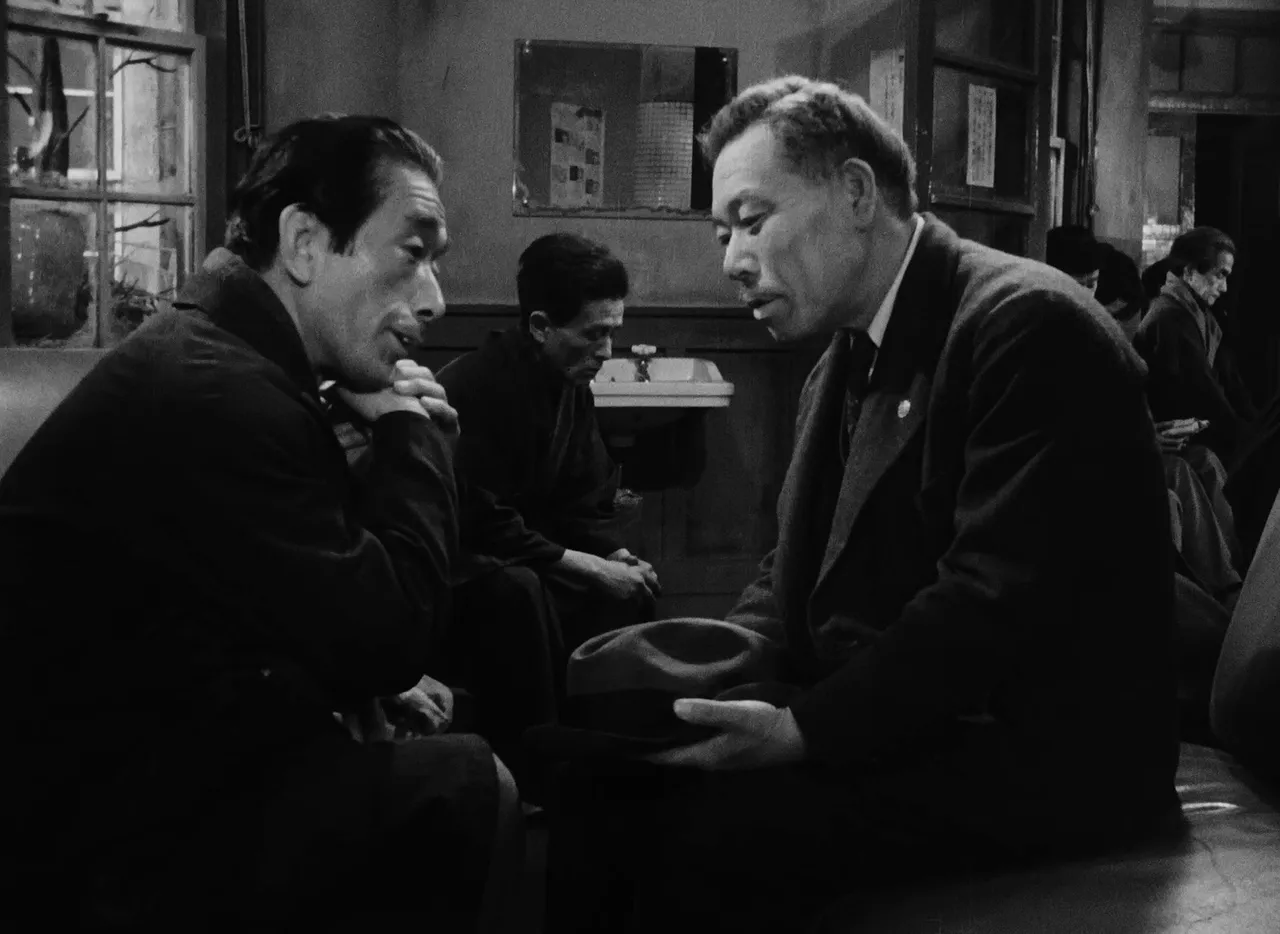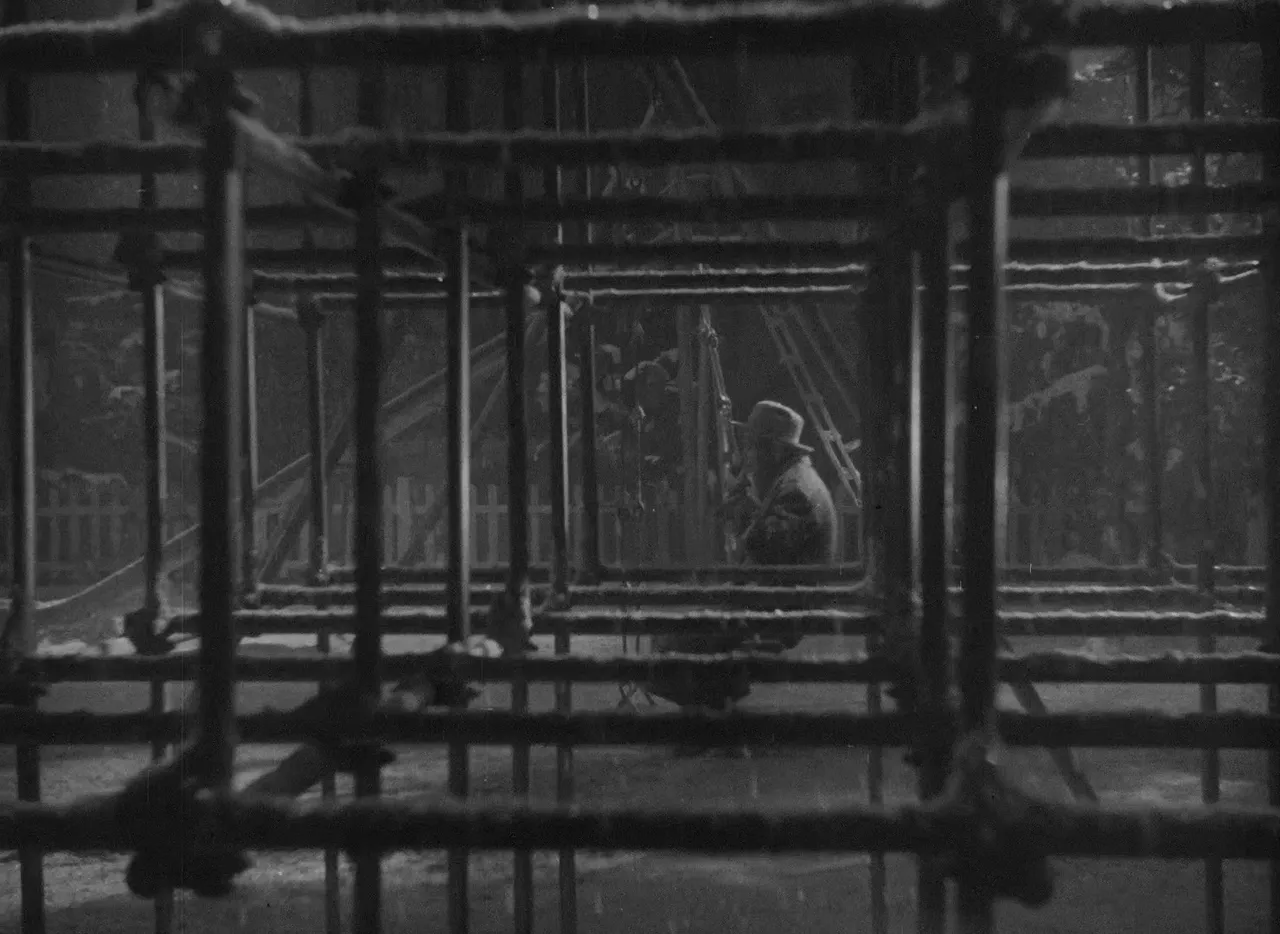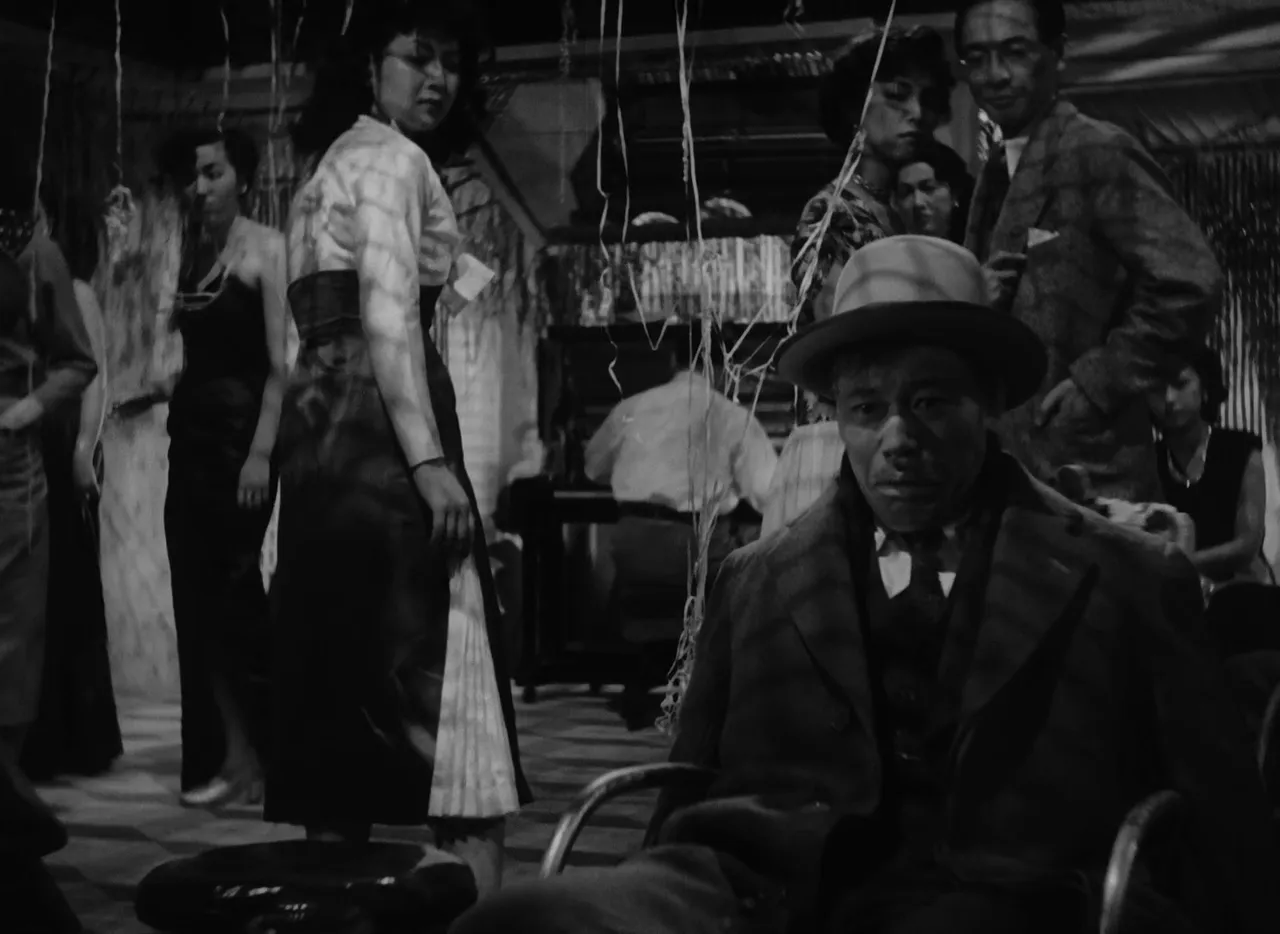
For many philosophers, the inevitable absence of God in our modern society is one that results in a lost people. Where we no longer live under the consideration that an all-powerful being might reside above, monitoring and judging our each and every move. The idea that following a God and the words commonly associated with them, commonly just known as religion, provides meaning to life and gives the people direction and purpose in life. The absence of God resulting in a mind void of purpose, lack of direction, and ultimately leading to a lack of satisfaction in life itself.
As our society grows more complex and structured under the horrors of bureaucracy, our time alive becomes increasingly spent on menial tasks: sitting at desks. Filling out paperwork. Watching the time pass with each tick of a clock. This life is one that is not well spent, but one that reduces us to lifestyles that are on par with being dead. Void of emotion, meaning, and personality.
Director Akira Kurosawa's Ikiru quickly dives into the aforementioned concept: a middle-aged man slowly entering his final years sitting in an office, pen in hand, paper at the desk. The narration speaking of his lack of life, of how he has been alive for many years, but not many of those years were truly spent living. His career having killed him many years prior. He simply exists now as a cog in the machine.
We see how our protagonist has spent countless years of his life relaying pointless bureaucratic information over and over to those who cross his path: "A problem this big should be handled by your city councilman." This life void of excitement and challenge having reduced him to a more robotic nature in which his physical appearance seems unkept and simply abandoned.

The camera follows our protagonist through a doctor's corridor, his back slightly hunched and his movements slow and lacking energy. "These days I hardly feel alive unless my stomach hurts," an old man sitting opposite tells him. Our protagonist's expression turning dull and full of fear as he progresses to detail the symptoms of stomach cancer. For this man, his life is so void of feeling that the concept of potential death and pain is what brings him the feeling of life.
These words hitting him with such strength, but the camera's positioning having our protagonist's face directed to us, the audience as each symptom is detailed. This composition is harrowing in its ability to direct meaning and fear of death into us, the viewer. As we realise how fragile our lives really are, and how fast it can come to an end without our control. Our protagonist awaits his own diagnosis over similar symptoms relating to the stomach, only to see the very same answers from the doctor.
We see our protagonist's realisation that time is incredibly precious, and that it should be spent well while we have it. Naturally, we all have our regrets in life and there's many things we'd reconsider or change in the past, but our ill protagonist has the epiphany that he never once really lived. He saved up his money and worked. Never relaxed or tried to pursue much else. This is the sad outcome of both his work and the sad loss of his wife that left him to raise their son. We see how these situations and memories of loss and responsibility have heavily impacted him to be as listless as he is.

Despite being released in 1952, Kurosawa's Ikiru accurately reflects our modern lives and speaks of the societal issues in which we are slaves to our jobs. How we are told that our lives and productivity is best spent being strong workers for a business. In 1950's Japan, such a mentality was highly prevalent, and still is to this day. Where people are worked into exhaustion. Encouraged to have multiple jobs and rush around from one location to another to fulfill work related tasks even outside of working hours. You must ask yourself as a viewer: how many times outside of working hours have you had to answer work related emails? Received work related texts you must answer? Even outside of work where we feel most free, we still remain a cog in the machine that continues to spin.
Even in the film's first 20 minutes you feel exhausted. Plagued by work discussions and environments, seeing the neverending events taking place all within a workplace. And even when our protagonist isn't present at work, people are already discussing who might replace them in the event that the worst has happened. It displays the reality of how easily replaced we are in this machine. Where we are worker drones ready to be pushed aside and replaced by another. Where the competitive nature of this society doesn't treat us like humans, but instead a lifeless lump of flesh capable of performing certain tasks.
We see how people treat us and look at us for our finances and possessions, as they scramble to discuss who should get what and how when death comes. They fail to display humanity and show empathy for us as fellow people, instead prioritising their own selfish needs and wants over the feelings of another, particularly in such moments of weakness where one needs empathy. The irony being that even our protagonist has failed to display empathy to others in times of need due to his bureaucratic work environment. "Misfortune teaches us the truth," says a stranger in a bar.
Often enough, the camera is showing up-close perspectives of our protagonist, but never fails to show him in a room full of people, where he happens to be completely isolated from the atmosphere. Far in thought and distant from the life taking place around him, now that he's fully aware of its importance. His realisation of his ignorance plagues him, even as those around him point out the boredom of work and the want for something new and exciting. For him, however, it appears to be far too late to make such decisions.
This style of cinematography is simple, but effective. We see directly into our protagonist's eyes. Deep into his thoughts and loneliness. His regrets become ours, and as we follow him through numerous environments we see how life went on without him; how even the busy streets go on with the chaos of cars and discussions, as he roams them too as a seemingly invisible entity to most.

Ikiru is a film that reminds us of time. The fragility of life as it falls victim to time. The unrelenting passing of time that by each second removes another moment of life from your future. It displays the importance of never failing to enjoy life and its simplest moments. To pursue happiness and leave the boring modern society lifestyle behind. In essence to reject modernity and embrace the pursuit of discovery, to create memories and experience new things. To pursue a life that, when the time comes to and end, is not filled with regret and sadness, but instead an admiration for the life that was lived and spent well.
Ikiru is a film that questions the terrible nature of work, and how our minds can fall victim to the facade that our day-to-day activities just to afford to live actually amount to anything of worth. How we happily trade in 30 years of life and ultimately it means nothing. The film is clearly anti-work, but in a way that reminds us that life should not be ignored. That there is so much more out there for us to see and enjoy and that while we are stuck working, we should never pass up the opportunity to live outside of those work hours.
It is a lesson to escape our greatest fears and remain curious. To never forget to learn and discover. To ultimately live, rather than merely exist.